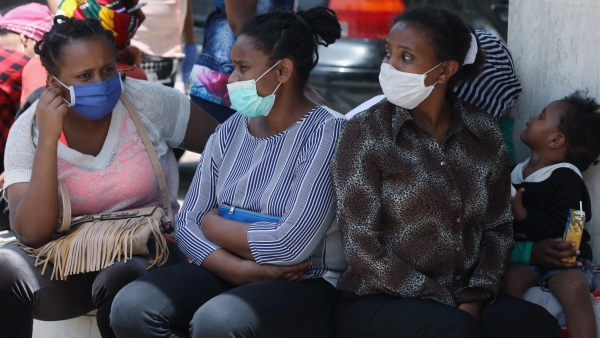The report collects insights and policy recommendations based on relevant data gathered by Médicins Sans Frontières (MSF) through their healthcare assistance project for migrant workers in Lebanon.
As a premise, it is explained how the access to healthcare by migrant workers is exceedingly restricted in the country, due to the current employment system – known as the Kafala system – which makes them compulsorily dependent on a sponsor. In addition to this, migrant workers in Lebanon are tipically subjected to physical and sexual abuse, long working hours, low wages, and restrictions on their movements and on their communication with the outside world, poor living conditions and a lack of privacy. These circumstances were particularly highlighted by the outbreak of the economic crisis, and even worsened by the onset of the COVID-19 lockdown, which exposed the deep structural flaws of this exploitative system. This resulted in lack of payment by employers, rising homelessness, inability to be repatriated back home, and declining living conditions in shared accommodation.
The report, then, shows how the combination of these factors is having a tremendous impact on migrant workers' physical and mental health, young women in particular. According to collected data and information, the majority of migrants who received mental health support from MSF (94%) were female, most (61%) of them under the age of 30.
It should also be noted that most of the women who reached out the mental health services reported a lifetime history of abuse, including forced labour, exploitation, harassment, trafficking, and many forms of physical and sexual abuse. For the majority, the abuse was perpetrated by their employer; others experienced abuse by an intimate partner or acquaintance
The report recalls that the poor mental health state of migrant workers reflects their deplorable living and working conditions, since the Kafala system not only limits their basic rights, but it also puts them at high risk of exploitation and abuse, especially during lockdown periods. MSF also found that migrant workers who lack proper documentation or sponsorship frequently experience stress, anxiety and depression due to their unofficial status, which hinders their access to basic services, healthcare in particular.
It is also highlighted how teams faced many challenges in getting psychiatric patients admitted to specialist hospitals in Lebanon, because of many different factors, including: slow referral and admission processes; limited bed capacity at hospitals; no insurance policy; expensive treatment and medication; absence of affordable psychiatric ambulance services; and reluctance by some patients about being admitted to hospital due to past traumas.
These limitations, which are heavy burdens on the shoulders of an already struggling community, have been analysed by Médecins Sans Frontières, who came forward with a set of proposals and policy recommendations. Through this set of proposals, MSF calls for a concrete renewal of the whole health-care system, requesting an increased effort to end the Kafala system and ensure the protection of migrant workers. The key messages also particularly focus on: the prioritisation of medical treatment for migrant workers regardless of their legal status; the inclusion of emergency psychiatric care in the standard insurance policy of migrant workers; the availability of professional spaces for recovering psychiatric patients and provide specialised care; the development of a community-based mental health response; the provision of basic needs that would allow migrant workers affected by mental health condition to live in dignity until they are fully recovered; the provision of legal and healthcare support for migrant workers willing to repatriate.
To learn more, please read:
https://www.msf.org/covid-19-and-economic-downfall-reveal-mental-health-crisis-lebanon
https://www.nytimes.com/2020/05/10/world/middleeast/lebanon-economic-crisis.html
Author: Nicola Diamanti




